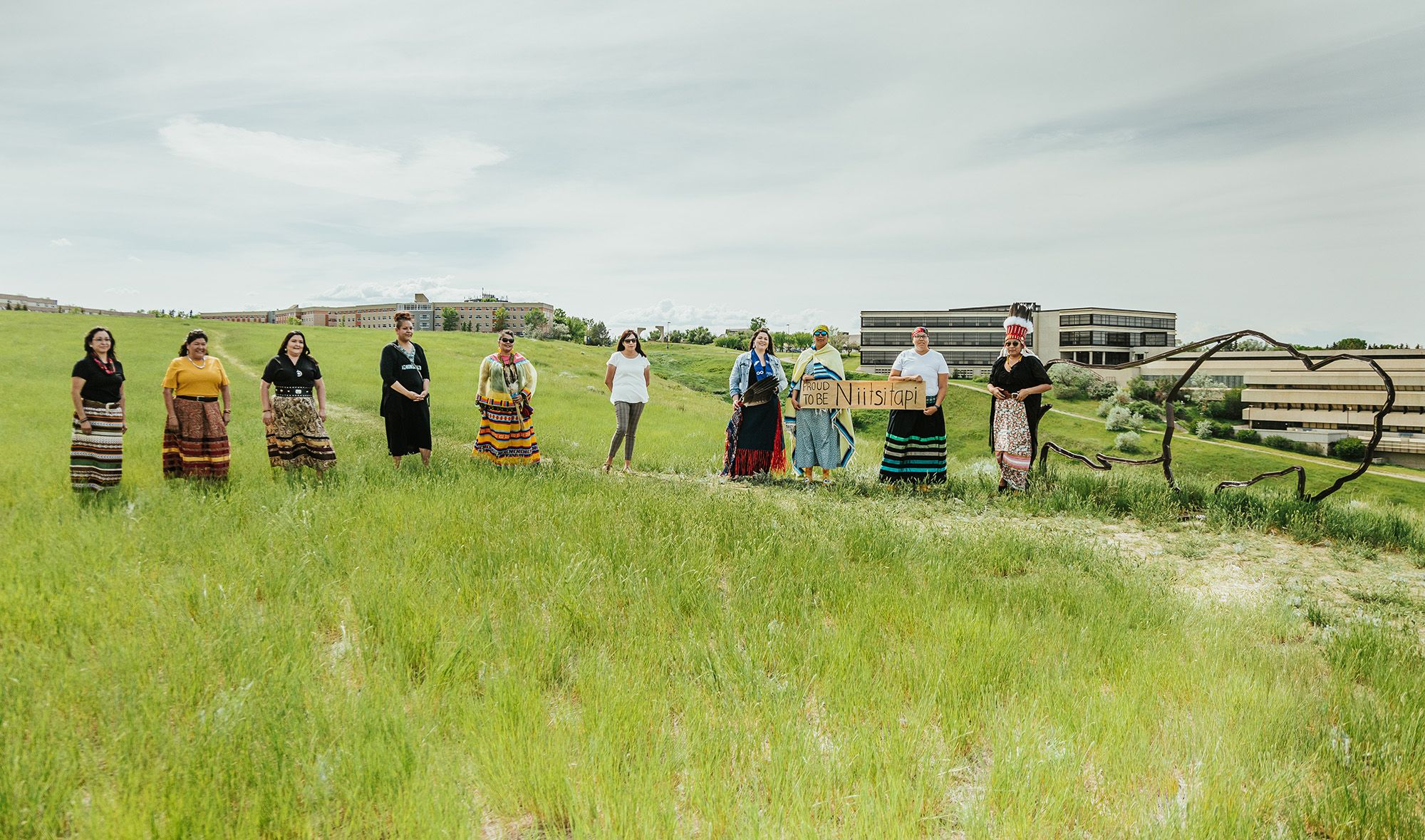A STATEMENT BY INISKIM/UNIVERSITY OF LETHBRIDGE ON NATIONAL INDIGENOUS PEOPLES DAY
For five centuries the relationship between North American Indigenous peoples and the European newcomers has largely revolved around the metaphysics, stories, justifications and assumptions by the newcomers. Those metaphysics, stories, justifications and assumptions of how the European newcomers came to claim the territories of North American Indigenous nations manifest themselves through notions of superiority, manifest destiny and pejorative notions of non-Christians.
In Canada, these have resulted in notions of discovery doctrines, terra nullius, Indian Act, treaties that are largely ignored, and the residential school era as bases for the relationship between the Euro-Colonizers and Indigenous nations of Canada. There have been opportunities to reconcile the relationship in the form of inquiries, commissions, court cases and numerous studies. The latest attempt at reconciliation is the Truth and Reconciliation Commission that tabled its report in 2015. In the Report, there were 94 Calls to Action, many of them having implications for institutions of higher learning.
June 21 is National Indigenous Peoples Day and Iniskim/University of Lethbridge is a campus where the Indigenous student voice is promoted and nurtured as students travel the academic journey. Iniskim has been committed to Indigenous communities since inception in 1967. We recognize the diverse population of Aboriginal Peoples who attend the University and the contributions these Aboriginal Peoples have made in shaping and strengthening our community in the past, present, and in the future.

As we reflect on the recent tragic discovery of the remains of 215 children at a former residential school in Kamloops, B. C., we are reminded of Canada’s devastating history of Indian Residential Schools that were instituted to accomplish a total de-culturing of First Nations peoples. Iniskim knows the sad and regretful outcomes of the Indian Residential School era and since the beginning of its existence realized the need to engage Indigenous communities by establishing a Native American Studies Department (now Indigenous Studies).
Over forty years of working in partnership with the Blackfoot Confederacy and other Indigenous communities has resulted, hopefully, in mitigating some of the dark Canadian history arising out of the Indian Residential School era. Iniskim takes the challenge from the Truth and Reconciliation Commission seriously. It takes it seriously because our institutional ancestors of our contemporary universities and colleges may well have educated the very politicians who enacted the legislation and policies of the residential school era; the Indian agents and bureaucrats who implemented the legislation and policies; and the missionaries and lay people who actually did the teaching in the residential schools. With this in mind, Iniskim will do everything within its mandate as an institution of higher learning to bring about healing and reconciliation.
To date, we have made great progress and continue to push ahead with new initiatives and ideas. Just recently, the Dhillon School of Business became the first business school in Canada to include an Indigenous course requirement as part of a student’s core business degree. The University’s unique partnership between the Blackfoot Confederacy, the U of L and the Mastercard Foundation is a transformational initiative designed to create new opportunities for Indigenous youth to access education and the needed supports to be successful, resulting in employment, economic inclusion and economic development opportunities within Indigenous communities.
And as leaders in our extended communities, Iniskim recently created a new course offered through the School of Liberal Education that is available to students and community members alike. Conversational Indigenization: Reconciling Reconciliation is an Open Studies course derived around the topics of reconciliation and Indigenization, particularly in business and governance perspectives.
These are just some of the ways Iniskim is taking up the call of the TRC. It is also neither a beginning or an end but one point in our ongoing commitment to creating a society grounded in respect for Indigenous ways of living and knowing.
In your prayers and support, remember the young lives lost.
Dr. Leroy Little Bear (BASc (BA) ’71, DASc ’03)
Distinguished Niitsitapi Scholar
Charles Weaselhead
Chancellor, University of Lethbridge
Reconciliation and Land Use Planning
Many non-Indigenous Canadians have begun the process of coming to terms with their own relationships to colonial institutions and structural power dynamics to be able to reconcile, both personally and professionally. Read more from alumnus Perry Stein (BA '09).
For those who are struggling with the effects of residential schools, or who may have been triggered by the latest revelations, support is available both on campus and beyond. Please contact Iikaisskini, Indigenous Counsellor Wilma Spear Chief, Counselling Services or the Employee Family Assistance Program. As well, the Indian Residential School Survivors Society (IRSSS) can be contacted toll-free at 1-800-721-0066.